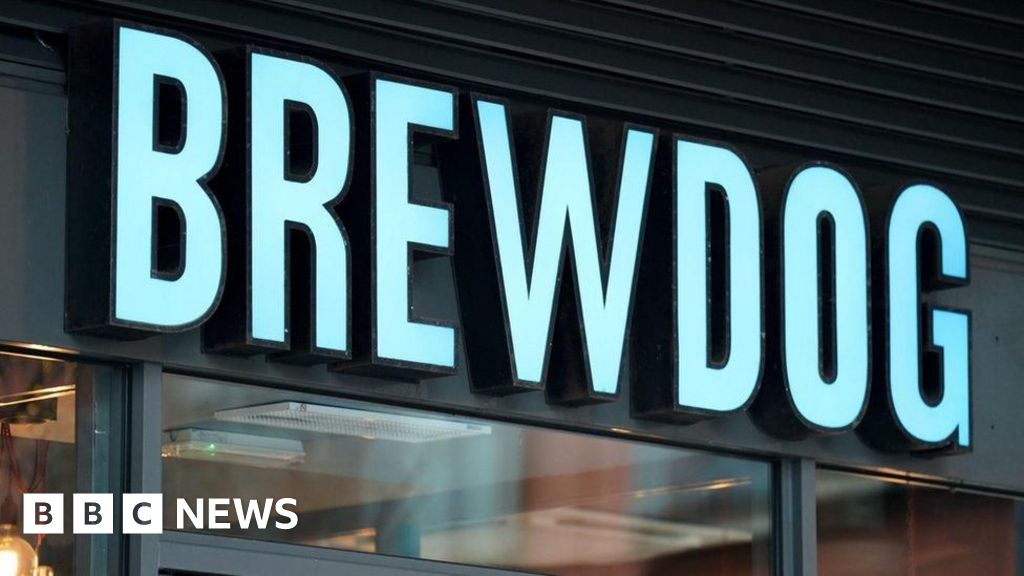Business
Border tensions trigger sharp decline at Pakistan Stock Exchange – SUCH TV

Share prices tumbled at the Pakistan Stock Exchange (PSX) on Monday as reports of clashes along the Pakistan-Afghanistan border rattled investor confidence.
The market remained volatile throughout the session, with investors also reacting to renewed uncertainty over the International Monetary Fund’s (IMF) inconclusive review talks and the country’s widening trade deficit.
The benchmark KSE-100 Index plunged by 3,932.88 points, or 2.47%, to close at 159,165.31 points.
A total of 466 companies traded their shares at the exchange; among them, 96 posted gains, 358 recorded losses, and 12 remained unchanged.
Market dealers said that institutional and major investors continued aggressive selling amid heightened uncertainty in both domestic and regional markets.
According to analysts, persistent concerns about economic stability coupled with escalating border tensions between Pakistan and Afghanistan further dampened market sentiment.
“Selling pressure intensified as investors reacted to speculative reports and geopolitical uncertainty,” said a Karachi-based stock analyst. “Confidence remains fragile, with many investors moving to safer assets.”
On Friday, the KSE-100 Index had fallen 735.94 points, or 0.45%, to close at 164,530.81 points. The index touched an intraday high of 166,729.97 points and a low of 164,306.77 points.
During the outgoing week, the KSE-100 shed 3.5% week-on-week, closing at 163,098 points, with trading volumes falling 7.6% to 1.6 billion shares.
Business
One in five UK grocery trips involves at least one missing item – report

One in five UK grocery trips involves at least one missing item, adding up to roughly £2.1 billion in “displaced” sales, according to a report.
As a result, 44% of consumers say they have switched to another supermarket or added in a visit to an alternative grocer in the past year to find an item they need – rising to almost two thirds of shoppers under 45, a study by DHL Supply Chain and the consultancy Retail Economics found.
Almost six in 10 shoppers (59%) said availability is a main reason they shop across multiple stores, and one in three now prioritised availability over price, a survey of 2,000 UK households suggests.
Meanwhile, convenience stores accounted for around one fifth of grocery sales but made up almost half of all displaced spending because of gaps on shelves.
Some 63% of shoppers believe availability is worse in convenience stores.
Nick Archer, managing director of convenience and consumer at DHL Supply Chain, said: “The research shows that even small stock gaps can have a significant impact on how shoppers feel about a retailer.
“Despite the pressure on shoppers’ wallets, loyalty is being driven by more than price.
“In a market where customers can switch stores with ease, availability is much more than an operational metric. Being competitive in today’s market requires precision.”
Retail Economics chief executive Richard Lim said: “In today’s environment of busy lifestyles, hybrid working and smaller, more frequent shopping trips, customers expect to find what they need quickly and easily.
“This is not only limited to grocery, but in all retail sectors, from fashion to beauty.
“Convenience comes down to having products there when the customer needs them, and availability has become the clearest sign of reliability.
“Retailers who get it right will be the ones who earn trust and lasting loyalty.”
Business
Shree Ram Twistex IPO Lists At 30% Discount, Clean Max Falls 20% In Debut Trade: Should You Buy, Sell Or Hold?

Last Updated:
Shares of Shree Ram Twistex Ltd and Clean Max Enviro Energy Solutions Ltd make lacklustre stock market debuts on March 2.


IPO Listings of Shree Ram Twistex Ltd and Clean Max Enviro Energy Solutions Ltd.
Shares of Shree Ram Twistex Ltd and Clean Max Enviro Energy Solutions Ltd made lacklustre stock market debuts on March 2, listing at steep discounts to their issue prices amid a sharp broader market sell-off triggered by escalating geopolitical tensions in the Middle East.
At 01:57 pm, the Sensex tumbled over 1,800 points, slipping below the 79,500 level; meanwhile, Nifty dropped below the 24,650 level.
Shree Ram Twistex lists at sharp discount
Shree Ram Twistex opened at Rs 68 on NSE, down 34.61% from its issue price of Rs 104, and at Rs 70 on BSE, marking a decline of 32.69%. The company’s market capitalisation stood at Rs 275.83 crore after listing.
Despite the weak debut, the IPO had seen strong investor demand, receiving 43.66 times subscription. The Rs 110.24-crore issue was entirely a fresh issue of up to 1.06 crore shares priced in the Rs 95-104 band.
Shivani Nyati, Head of Wealth at Swastika Investmart Ltd, said, “The muted listing reflects cautious sentiment and possible profit booking, even though the IPO was subscribed 43.66 times, with very strong demand in the retail and NII categories.”
She added that proceeds will be used for captive solar and wind power plants, debt repayment, and working capital support, which could lower energy costs over time.
“Volatility may persist in the short term. High-risk investors can consider holding with a strict stop loss at Rs 60. Fresh entry is advisable only after the stock shows signs of stability and buying support,” she said.
Clean Max falls sharply after listing
Clean Max Enviro Energy Solutions listed at Rs 960 on NSE, an 8.83% discount to its upper price band of Rs 1,053, and at Rs 952.20 on BSE, down 9.57%. During the session, the stock dropped as much as about 20% from its opening levels. The firm’s market valuation stood at Rs 10,111.54 crore.
The Rs 3,100-crore IPO saw moderate demand, getting subscribed 94%. The issue comprised a fresh issue worth Rs 1,200 crore and an offer-for-sale of Rs 1,900 crore.
Nyati said, “While the long term business outlook remains structurally positive, the weak listing indicates near term caution and limited immediate upside visibility.”
She advised caution for investors: “Allottees may hold if risk appetite is high but should maintain a strict stop loss at Rs 900. Fresh investors are advised to wait for price stability and strong demand support before considering new positions.”
Business fundamentals vs listing sentiment
Shree Ram Twistex manufactures cotton yarn, while Clean Max operates in the renewable energy solutions space, providing solar, wind, hybrid power and carbon credit services for commercial and industrial clients.
Analysts note that weak listing performance does not necessarily reflect long-term fundamentals, particularly when broader market sentiment is risk-averse. However, steep listing discounts often indicate either aggressive IPO pricing or short-term liquidity pressure.
Should investors buy, sell or hold?
For Shree Ram Twistex, experts suggest only high-risk investors consider holding with tight risk management, while new investors should wait for price discovery. For Clean Max, the recommendation is similar: hold only if risk appetite is high and avoid fresh positions until stability returns.
In both cases, analysts stress that listing day performance should not be the sole investment metric; sustained earnings visibility, balance-sheet strength and institutional participation over the coming quarters will determine whether these stocks recover or continue to lag.
Follow News18 on Google. Join the fun, play games on News18. Stay updated with all the latest business news, including market trends, stock updates, tax, IPO, banking finance, real estate, savings and investments. To Get in-depth analysis, expert opinions, and real-time updates. Also Download the News18 App to stay updated.
March 02, 2026, 14:42 IST
Read More
Business
Brewdog closes all bars for a day as it looks to complete sale

The company brought in consultants AlixPartners last month, after failing to make a profit in recent years.
Source link
-

 Business1 week ago
Business1 week agoEye-popping rise in one year: Betting on just gold and silver for long-term wealth creation? Think again! – The Times of India
-

 Politics1 week ago
Politics1 week agoPakistan carries out precision strikes on seven militant hideouts in Afghanistan
-

 Tech1 week ago
Tech1 week agoThese Cheap Noise-Cancelling Sony Headphones Are Even Cheaper Right Now
-

 Sports1 week ago
Sports1 week agoKansas’ Darryn Peterson misses most of 2nd half with cramping
-

 Sports1 week ago
Sports1 week agoHow James Milner broke Premier League’s appearances record
-

 Entertainment1 week ago
Entertainment1 week agoViral monkey Punch makes IKEA toy global sensation: Here’s what it costs
-
Sports1 week ago
Mike Eruzione and the ‘Miracle on Ice’ team are looking for some company
-

 Entertainment1 week ago
Entertainment1 week agoSaturday Sessions: Say She She performs "Under the Sun"















